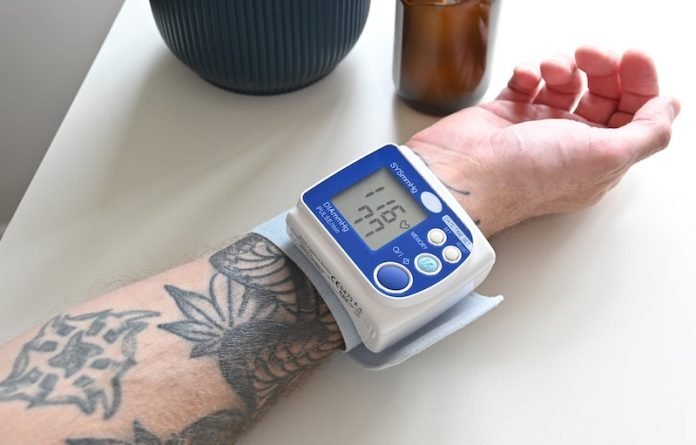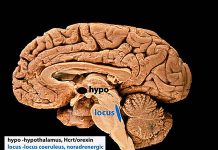
In a new study, scientists found among people who received more intensive treatment for high blood pressure, evaluations of MRI scans indicated a positive change in brain structures involved in its ability to clear toxins and other byproducts.
The study is the first to examine whether intensive blood pressure treatment may slow, or reverse structural changes related to the volume of the brain’s perivascular spaces, areas of the brain around the blood vessels that are involved in the clearance of toxins and other byproducts.
These areas tend to enlarge as people get older or have more heart disease risk factors.
In the study, the researchers analyzed brain MRI scans for 658 participants (average age of 67 years, 60% women) of the SPRINT-MIND MRI substudy.
All participants had high blood pressure but none had previously been diagnosed with diabetes (Type 1 or 2), dementia or stroke.
After an average 3.9-year follow-up period, 243 people in the intensive treatment group (systolic blood pressure goal of 120 mm Hg) and 199 people in the standard treatment arm (systolic blood pressure goal of 140 mm Hg) had pre– and post–MRI scans that were analyzed for the percentage of brain tissue taken up by perivascular spaces.
The team found in MRI scans taken when the study began, the percentage of brain tissue occupied by perivascular spaces was higher among the patients who were older and had a greater volume of white matter hyperintensities (areas of increased brightness on an MRI scan that are the best-established marker of damage to small blood vessels in the brain).
These patients also had more brain atrophy, another marker of aging and declining brain health.
The team found at the start of the study, the volume of perivascular spaces was similar among participants in both blood pressure treatment groups.
After almost 4 years of high blood pressure treatment, the volume of perivascular spaces had decreased significantly in the intensive treatment group but did not change in the standard treatment group.
Previous research has confirmed that effective blood pressure control is important for brain health.
The current findings suggest that intensive blood pressure control may be beneficial by reducing damage to the brain’s toxin and byproduct clearance pathway.
According to the American Heart Association, normal blood pressure is below 120/80 mm Hg.
For adults, if systolic pressure (the top number) is 120 to 129 mm Hg, and diastolic pressure is less than 80 mm Hg, this is classified as elevated blood pressure.
High blood pressure is a systolic pressure of 130 mm Hg or higher, or a diastolic pressure of 80 mm Hg or higher, that stays high over time.
If you care about blood pressure, please read studies that vitamin B can reduce hard-to-treat high blood pressure, and this small habit can help control blood pressure and cholesterol levels.
For more information about brain health, please see recent studies that common antibiotic drug may treat frontotemporal dementia, and results showing seizures may relate to faster decline in people with dementia.
The study was conducted by Kyle Kern et al and presented at the American Stroke Association’s International Stroke Conference 2023.
Copyright © 2023 Knowridge Science Report. All rights reserved.



